The photo above of an advertising hoarding for a popular skin cream is, in some respects unremarkable: yet another product to beautify the skin. But this is West Africa and even a generous interpretation would we hard pressed to describe the model as even mixed race. If this was some lone, anomalous advert it would not be worth more than a brief mention but it is typical of marketing for beauty products in the region. Of the dozens of ads I have seen, only one used a dark-skinned model and one had a typical skin colour. The rest used either light-skinned, mixed race or white women. To put this into perspective you can walk around many major cities for a day and only see one or two African women who fitted this “ideal”. As for mixed race women, I have seen none in two months.
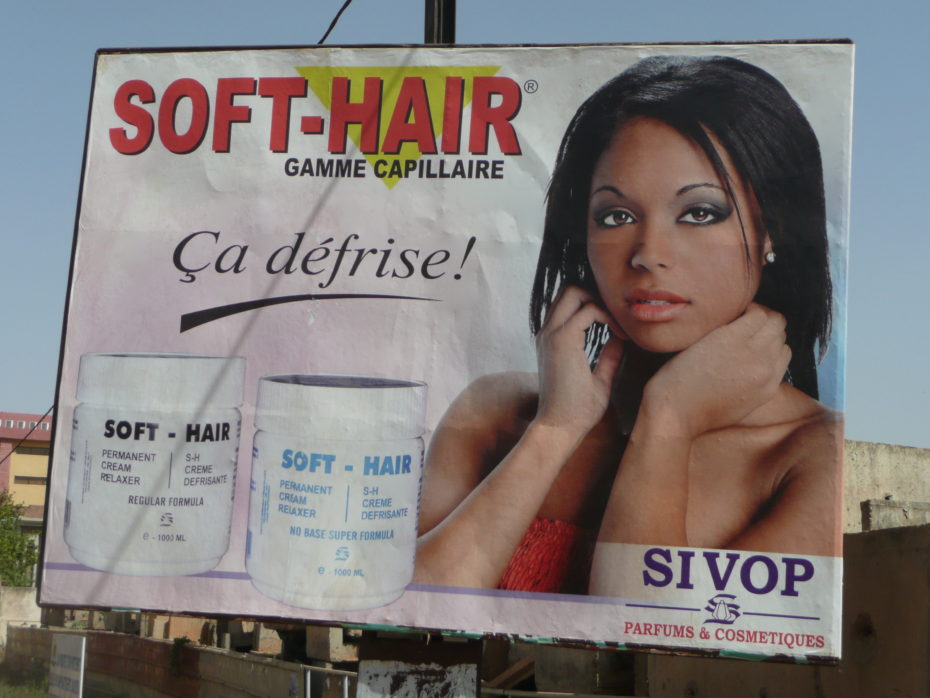
An ad for hair straightener with a model who probably had straight hair to start with. Also some English words to add a bit of exotic “cool” in French speaking Burkina Faso
It should be borne in mind that, unlike southern or eastern Africa there is effectively no local white and/or light-skinned population, such as the San in S. Africa. The light-skinned ethnicities such as Berbers and Tuaregs are essentially found only in the regions of the Sahara and if anything there is a negative feeling towards them in places, especially since the troubles in Mali. If you see a Tuareg in the southern countries they are more likely to be begging than out shopping. To some degree these groups are seen as North African rather than simply African.
The music industry, particularly with rap videos has done its bit to aggravate this issue recently by regularly using mixed race models in preference to dark-skinned ones. You would hardly expect the average rapper to be a paradigm of virtue in matters concerning the sexual imagery of women but it demonstrates the allure of the exotic, foreign women in much the same way as dark skin has been used in the West. More disturbing is that as these beauty product companies can hardly be staffed entirely by African rappers, there must be some women involved in endorsing these decisions. The end result of all this is to lower women’s self esteem and promote skin bleaching, which is well-known for its health risks. Although some of these are global companies, to think that some African women must be helping propagate these practices is simply depressing. Whatever happened to “black is beautiful”.
It has reached epidemic proportions in Nigeria, where a World Health Organisation survey found that 77% of women used skin lightening products. There is a surprisingly widespread perception that light skin is more attractive and such people are more successful. A globalized media and beauty industry has only served to exacerbate this belief. Ironically this preference for lighter skin can be traced back to the better treatment given by slave owners to their children with African slaves.
The image above must surely rank as the most absurd of my trip. I am sure the model in question is a fine young lady and I wish her every success in her modeling career but whoever decided that she should be the face of anything called Africa Queen needs to be taken out and shot, with their corpse unceremoniously dumped in a cess pit. To use a black model in, say Britain for something labeled British makes a laudable stand against racist attitudes. The converse cannot be said in Africa as it conveys the message that what nature or, God if you prefer gave you is not good enough.
If you are a mixed race model in Europe and lacking work, get yourself to Africa. I can’t guarantee you riches but you will soon have a bulging portfolio and get to shag some famous rappers.
Dark skinned women of the world we love you as you are, please keep it that way.




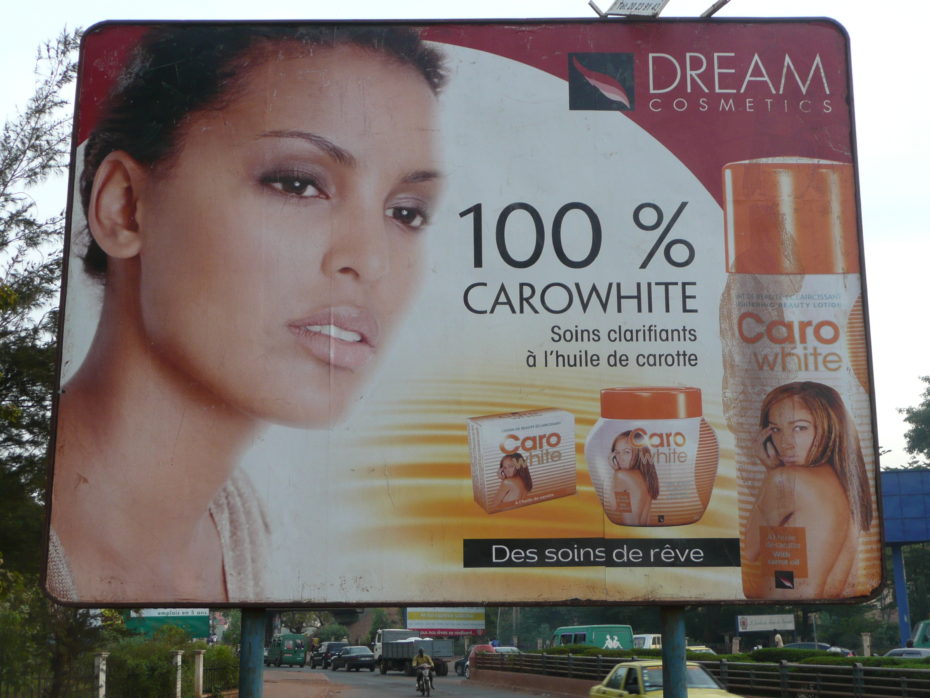
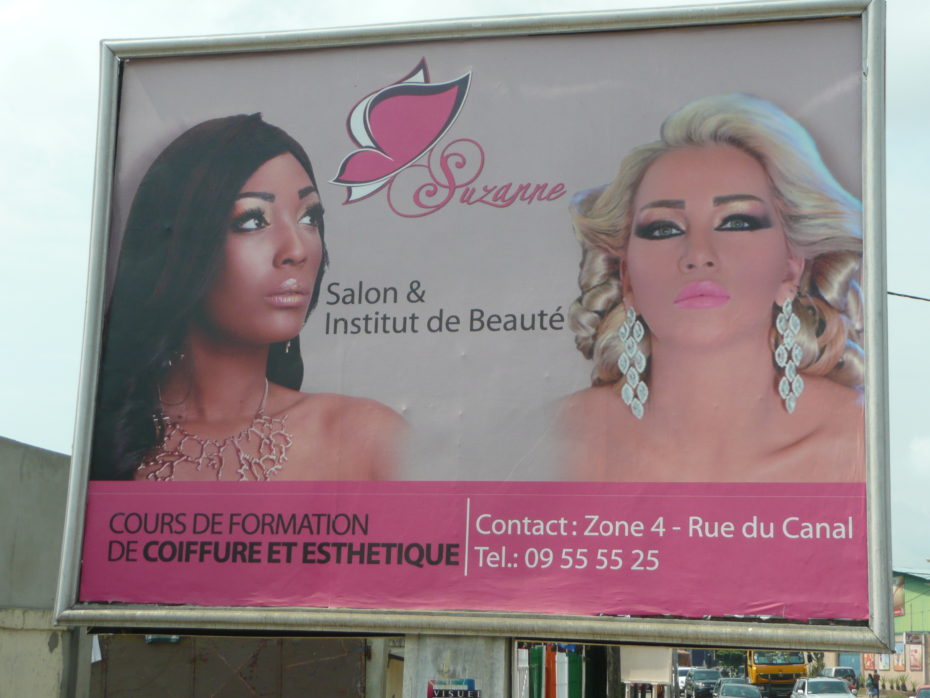
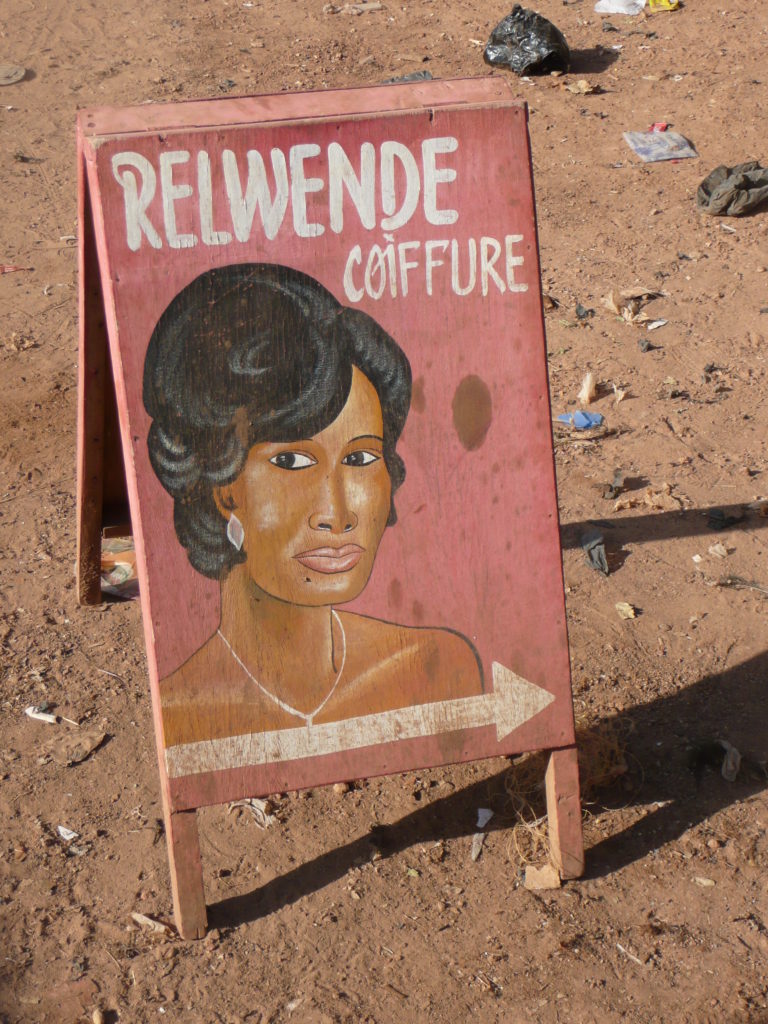
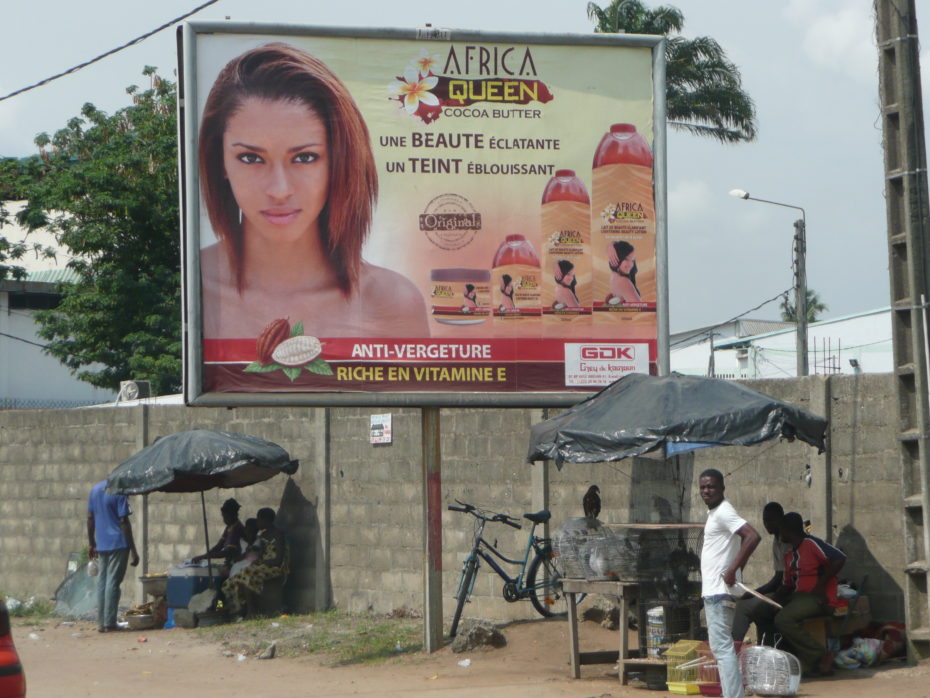

Hey Graham Askey! I googled “skin lightening advertisements in Africa” and luckily ran into your blog! I would like to use some of these images for a paper I will be writing on the usage of skin lightening creams in Africa today and its tie to colonialism, is this fine by you? Also, would you mind telling me what countries these advertisements hail from specifically? Very cool work/ great commentary!
Hi I did try e mailing you but if you did not receive it please e mail me at grahamaskey@yahoo.co.uk thanks
There are some terrifying ingredients in skin whitener and the chemicals in hair relaxer will dissolve a coke can if left on long enough – that is the stuff that is put on the heads of children.
Worrying stuff! Did you get the sense that women in Vietnam are under a lot of pressure to use these products or is it more of a personal choice?
I don’t know where you’d draw the distinction between social pressure to confirm to beauty ideals and personal choice to confirm to beauty ideals. They feed and feast on the one another.
Should rephrase the question: are some women actively making an issue of the social/advertising pressure and made it a talking point or is it generally accepted as just another beauty treatment.
Like in all cultures there is a counter-beauty culture, ie some people do seek a to develop a tan.
From what I gather, there don’t seem to be a lot of discussion about skin whitening being very different to other beauty treatments, but I have to admit that I miss a lot of conversations around these issues because I don’t understand Vietnamese well enough to read magazine articles, join in cafe discussions, etc.
Thanks for the insight. It seems to have come more of an issue in Africa because it goes to the core of African/Black identity, which is less true in East Asia, though I suspect in India the issue of caste comes into it. With a large African diaspora in the West the internet has opened up discussion of such subjects in recent times and there are plenty of African women who sit firmly on either side of the argument but as you say it’s all inter connected.